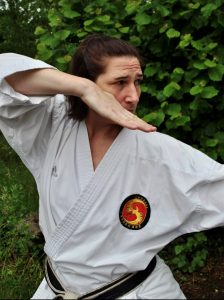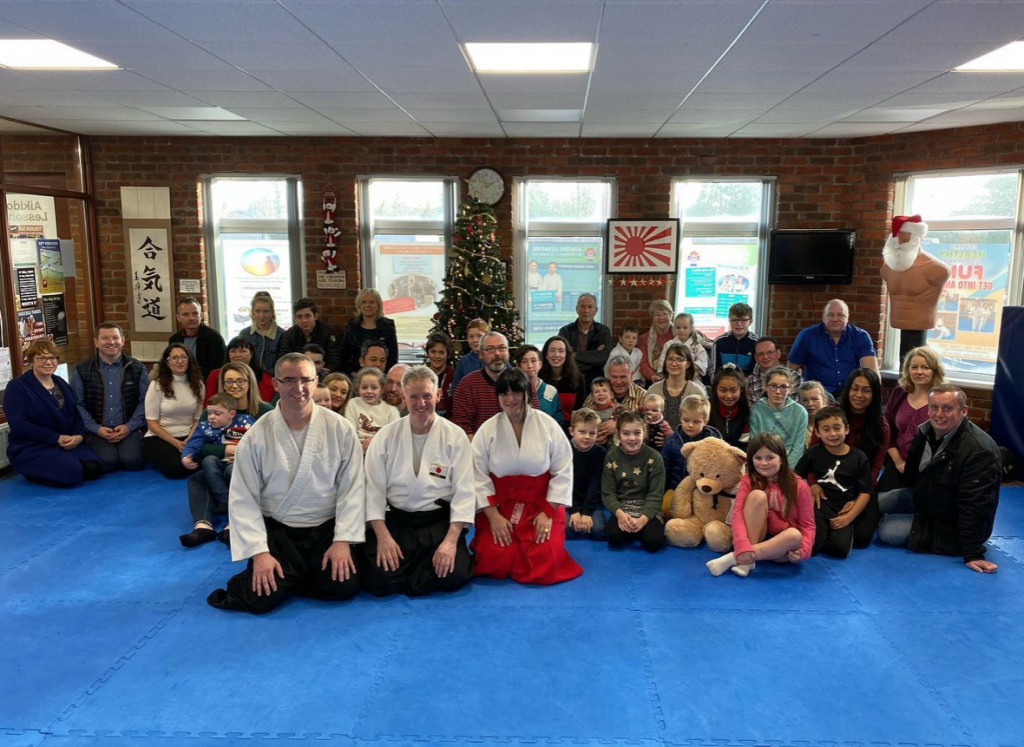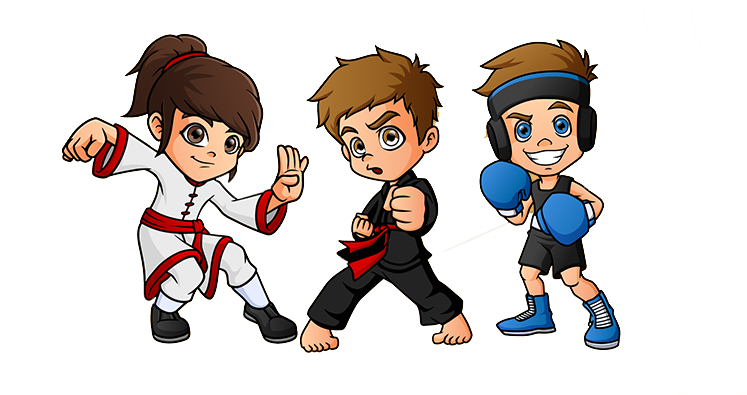Mental Health is a point of discussion right now, as people are more open in discussing their mental wellbeing as well as their physical wellbeing.
We asked our Martial Arts schools on how training can help relieve anxiety. Here is what they said.
Aspects of Anxiety
Mary Stevens / Athena School of Karate
It’s no secret that martial arts benefits both mental and physical health. Increasingly, we’re able to see and talk about this – and that’s hugely important right now. As martial arts instructors, the more we can open a dialogue with our students about how to sustain good mental health, the more we can make a difference in their lives. Statistically, very few of our students will need physical self-defence skills in their regular daily lives. Anxiety and depression, however, may attack unexpectedly at any time, and as we nurture our students back into the real world from their online nests, we must try to provide them with the best tools to manage the new environments they are in.
Some of our school age students will bounce back with enthusiasm. For others, though, emerging into this warped reality is highly stressful. Gavin De Becker teaches that fear is a response to a known threat, but anxiety is about uncertainty. We exhaust ourselves with ‘what if’ scenarios and seek to find some control in the confusion. It helps students to understand what they can control with safe habits (distancing, handwashing, masks when appropriate) and what they cannot control (other people’s words and choices, for example). It helps for them to recognise the signs of anxiety and learn how to adopt a self-care approach to challenging situations.
For regular situational awareness, my students like Cooper’s Colour Codes. Even the younger ones can grasp the concept of white (relaxed mental state in a safe place) yellow (raised awareness to avoid traffic, unknown people, new environments) orange (noticing a potential threat and assessing it) and red (taking urgent and powerful action to secure safety). Right now, as our young people are being encouraged back to schools and into their adapted routines, they need that orange state of alertness all the time. It’s making some of them irritable. It’s making some of them reluctant. Many have cherished being at home and feel wrenched from their cocoon. So, what do we do?
One thing that helps with anxiety is training. Gretchen Carlson (Martial Journeys of Madison) has done a wonderful podcast on the many benefits of martial arts training to help with mental health (highly recommended) but here’s a couple of very relatable points for your students. Training requires you to be distracted from the outside world and therefore provides a healthy break from your internal chatter. Training involves conversation and interaction with people who share an interest and care about each other. The repetition and refining actions of practising physical techniques such as kata, or any sequenced moves, are rhythmic and soothing for the brain and the body. Martial arts allow you to feel controlled and powerful; your body remembers this and it helps you to be grounded and to cope with the unexpected. The benefits of exercise for mental health have long been established and processing the adrenalin of the extra tension we’re all experiencing can help rest and sleep too.
Next challenge then, how do we get our anxious students back into classes to experience these benefits? Even a journey of a thousand miles starts with a single step. To help your students rebuild or adapt their training habits, you’ll need to meet them where they are. For some, this simply means back to classes and learn the new rules. For others, it will mean seeing their instructor enforce the rules that keep them safe. Signage, sanitizer, ventilation…these may be necessities but they are also reassuring for our families. If we show that you are not casual about their safety, they will be able to focus on learning and having fun.
Many students and their families do not yet feel ready to come back into classes and this is where online provision is still really important. A significant percentage are still protecting vulnerable family members, or minimising their own risk. With the current restrictions on face-to-face training, there is still so much benefit to the Zoom environment where the student is comfortable at home, and we can still connect frequently to share training. It’s been wonderful through the lockdown to hear such positive accounts from parents about how online training has helped to keep a sense of community, progression and routine.
Small steps are still steps. There has never been a more important time to offer the mental health benefits of martial arts training. Sometimes we all need a bit of kicking and punching therapy!
Check out these great resources:
Gretchen Carlson – Martial Journeys of Madison episode 28

Written by Mary Stevens, the author of the Warrior Monkeys - Martial Arts adventure stories for young readers.
MC Stevens is also a martial arts instructor with 17 years’ experience in karate, weapons, and jiu jitsu. A former English and History teacher at secondary school level, she also works for an international charity which empowers young girls in developing countries, using karate as a tool to develop confidence and self-determination.
The Mindful Martial Artist
Master David Hodson / Fortitude Taekwon Do Academy
Martial Arts offers the potential student many well known benefits such as life saving self defence skills and techniques, accompanied by increased fitness, muscular strength, endurance and flexibility. The list of benefits is more extensive than this and added to that list is the lesser known or appreciation of how martial arts helps with overcoming anxiety.
Anxiety is something that effects many people and even more so now because of the pandemic.
People are often seeking help with their anxiety but may be put off by taking medication because of the addictiveness of some tablets. Anxiety ignored can lead to further problems and eventually further mental health issues. So how does martial arts help with dealing with anxiety. Firstly, martial arts invariably involves physical exercise and this alone is a great help with many mental health challenges. It is physical excursion that releases stress, anxiety and tension in the body. Anxiety results from overstimulation of the autonomic nervous system or what is known as the fight or flight response.
This part of us is there to protect us should we ever need to deal with a physical threat by either running away or responding by fighting back.
However, it is often the effects of modern living and stress that triggers this response and not a real physical threat. Therefore our fight or flight response is not used and ultimately suppressed which can lead to feeling anxious or on edge.
When we attend a martial arts class we will learn techniques that involve kicking, punching, striking, throwing the movements that are involved in fighting. Having the opportunity to use these techniques safely on pads and other training equipment can have a cathartic effect on those who suffer from anxiety.
Along with the physical moves and the opportunity to hit pads and release energy there is the social aspect of training in the martial arts, making friends and sharing experiences has a calming effect on those who attend.
Respect is built in a martial art school where rules apply to allow each student to enjoy their training while feeling part of a group of like minded individuals all following common goals. It is the togetherness that builds trust amongst the students. When we enjoy ourselves, have fun and train well we release endorphins into our system. These endorphins are natural and allow us to feel good, they strengthen our immune system and release stress and anxiety.
After training in the martial arts for some time it becomes easier to understand when people say “it is a way of life”, what is learnt and practiced in the training hall can then be applied to every day life.
In martial arts we learn how to control our emotions, instruction is given on how to use ones breathing to take control of ourselves. For some people they learn to calm down while others learn how to develop their confidence for both it is a similar journey of self discovery.
If you suffer from anxiety you owe it to yourself to explore the varied world of martial arts and find a club that fits with what you are looking for as there are many throughout the world that are helping thousands of people each week to overcome anxiety and lead more fulfilling lives.
Written by Master David Hodson of Fortitude Academy & Writer of The Mindful Martial Artist
Instructor, School Owner & Franchise Owner of Fortitude Academy
Over 30 years training in the martial arts.
Over 25 Years teaching Taekwon Do.
From single school owner with 30 students to Co Owner of Fortitude Academy reaching over 1300 students each week via our main schools and franchises in Kent, Surrey, Manchester and Sussex
Over the years we have produced World, European and National champions.
Just as importantly we have great success teaching in our local communities where students of all ages, all abilities can train together in a safe, nurturing, family environment.
David also qualified in 1997 as a clinical hypnotherapist and ran successful practices for many years in Croydon, Oxted and Harley Street in London.
David also has a blog on Facebook called The Mindful Martial Artist
Which is dedicated to mindfulness meditation practice. Daily insights are posted along with a weekly Zoom mindfulness meditation class.
David can be contacted directly by email at david_hodson@btinternet.com
Aikido for Anxiety and Mental Health
John Moore, student at Martin Acton’s Aikido Institute (Dromore, NI)
What is anxiety?
Anxiety is a symptom; of many possible underlying causes. It affects increasingly more people, of any age, gender, ethnicity, social and cultural background. We can also say that anxiety looks like a challenging “fight” we all had to measure ourselves in, at least once in our lives; and when it comes to battle against an enemy we cannot even see, then we all are equal in our fears, our deep sense of inadequacy and finitude. Mental health is very real.
What can Aikido potentially do to help prevent worsening of symptoms like anxiety or depression?
Aikido is a noble martial art. A concentrate of powerful elegance, emotional and physical balance. Aikido has a short history compared to other Japanese martial arts but it certainly has more to give to modern society in its struggles, specifically with healthcare, and the predominant lack of proper attention and systematic approach to the resolution of the problems of the “psyche”. Not only Aikido is fundamentally based on the deep connection between what we call body and mind, but it also promotes a silent dialogue which happens when the opponents engage in a “relationship”, more than a fight. When you hear someone saying that an Aikido fight is like a “dance” it means literally that it creates the occasion for two aikidokas to present and express themselves, in their own individuality which is respected, fairly evaluated and re-defined, with the purpose of gaining a better chance of growth. Aikido offers a context where people can train more than their bodies. They can train their minds, their social skills, their empathy and become better human beings.
At Martin Acton’s Aikido Institute, we see this happening constantly. Our students learn from experience, through the discipline of practice, with no pressure, no anxiety deriving from having to meet standards and expectations. Nothing is expected from you, in Aikido, that you do not already have within yourself. We aim to cultivate the talents, which are very different and unique in each one of us, and to promote integration and togetherness.
Aikido is definitely “A cure for modern Society”; which is also the title of a new book, currently in press, written by our Sensei, Martin Acton. Sensei Acton firmly believes that the spirit of martial arts is far from gone and that it will be the response our Present needs to be able to build a successful Future.
Sensei Acton’s Dojo partnered with other sport facilities from day one in County Down. We now actively collaborate with Athena Mental Health, a company founded by Dr. Melania Duca, medically trained psychotherapist who specialises in personality disorders and neurodivergence. During a project we have developed together with Dr. Duca, a few of her patients affected by Asperger’s Syndrome were able to show interest in Aikido and benefit from performing not only the techniques but more generally a control of their movements with an empowered awareness. We do often welcome Dr. Duca’s behavioural experiments and social therapy involving Aikido and we wish more Dojos could do the same, recognising that times have changed and communities are very much in need of guidance and pragmatic solutions to a problem, that one of mental health, which grows bigger and bigger every year, with thousands of young victims.

Written by John Moore, student at Martin Acton’s Aikido Institute (Dromore, NI)
After he studied with the Top Masters, Martin Acton Shihan run two Dojos in Japan where he lived for over 20 years, before moving back to the United Kingdom where he founded the “Martin Acton’s Aikido Institute” based in Dromore, which is now the only full time Aikido Dojo in Northern Ireland.
The School was established in 2011 with the purpose to bring what he learnt “back home” and share it with as many western people as possible. At Martin Acton’s Aikido Institute, we teach traditional Aikido better adapted to face the challenges of modern society. We do care particularly about bullying and domestic violence; we offer courses of self-defence and anger management programmes.
Recently we have signed a collaboration agreement with Athena Mental Health, Wellbeing & Training Limited, a company founded by Bio-psychoanalysis Pioneer Prof. Dr. Melania Duca, senior psychotherapist, to promote Aikido even further as a special tool to achieve recovery from trauma and psychological abuse, overcome confidence issues and help socialising.

